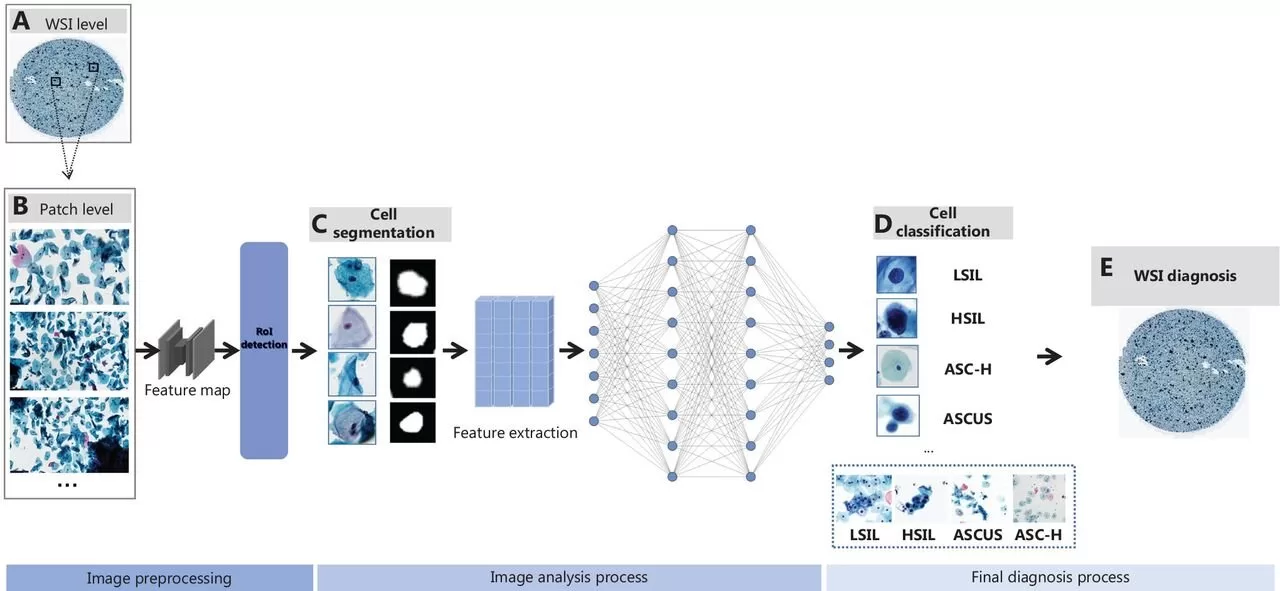Cervical cancer remains one of the most significant health threats for women worldwide, with its highest incidence found in developing nations. Despite the availability of preventive measures, limited healthcare resources and insufficient screening programs continue to hinder efforts to combat the disease. In response to this challenge, the World Health Organization (WHO) has set an ambitious target to screen 70% of women aged 35 to 45 by 2030, a critical step in reducing global mortality rates.
However, achieving this goal requires innovative solutions, particularly in regions with restricted access to healthcare. A promising avenue is the use of artificial intelligence (AI) to improve cervical cancer detection. Recent research from the Chinese Academy of Medical Sciences and Peking Union Medical College, in collaboration with the International Agency for Research on Cancer, offers hope through AI-enhanced screening methods. Their study, published in Cancer Biology & Medicine, examines how AI can revolutionize cervical cancer detection, focusing on medical image recognition.
AI’s role in cervical cancer screening has the potential to transform traditional methods, which often rely on subjective interpretation and require highly trained professionals. Deep learning algorithms allow AI to analyze medical images with human-like precision, enhancing the accuracy of cervical cancer detection. The research highlights AI’s ability to automate the segmentation and classification of cytology images, which is critical for early diagnosis. This automation not only increases detection efficiency but also reduces the risk of human error.
In addition to cytology image analysis, AI could enhance the colposcopy procedure, which involves visual examination of the cervix. Colposcopy, traditionally reliant on subjective interpretation, can be augmented with AI to provide more objective and consistent results, even in low-resource settings. By offering real-time, AI-driven analysis, the procedure can become more accessible and effective.
Moreover, AI’s role in risk prediction models, based on clinical data, is being explored. These models, powered by machine learning, can predict the progression of high-risk HPV infections and the development of cervical cancer. Personalized risk stratification, made possible by AI, could reduce unnecessary referrals and improve the targeting of screening interventions, making them more efficient.
Dr. Youlin Qiao, the senior author of the study, underscores the transformative impact of AI on cervical cancer screening: “AI has the ability to revolutionize cervical cancer screening by offering automated, objective, and unbiased detection of both cancerous and precancerous conditions. This technology is particularly vital for bridging the healthcare gap in underserved regions.”
The potential implications of AI-powered cervical cancer screening are vast. Beyond improving detection rates, AI can help expand access to screening services in remote and underserved areas, where access to specialized medical professionals is limited. If adopted worldwide, AI-assisted screening could drastically reduce misdiagnoses, improve healthcare delivery, and move closer to the goal of eliminating cervical cancer by the end of the century.
Despite its promise, there are significant challenges to overcome before AI can achieve widespread clinical integration. These include:
- Data Standardization: Global platforms are needed for standardized and annotated datasets to ensure that AI systems are trained on diverse, high-quality data.
- Ethical Integration: Addressing issues related to transparency, privacy, and accountability is essential for building trust among healthcare providers and patients.
- Model Interpretability: To foster confidence and smooth integration into clinical workflows, AI systems must be more explainable.
- Validation Across Contexts: Rigorous validation studies are necessary to ensure AI tools are effective across different healthcare settings, and clinicians need training on how to effectively use these technologies.
By addressing these challenges, AI-driven cervical cancer screening could revolutionize global healthcare, providing a powerful tool in the fight against one of the most preventable cancers.
Source: Tong Wu et al, Artificial Intelligence Strengthens Cervical Cancer Screening—Present and Future, Cancer Biology & Medicine (2024). DOI: 10.20892/j.issn.2095-3941.2024.0198












